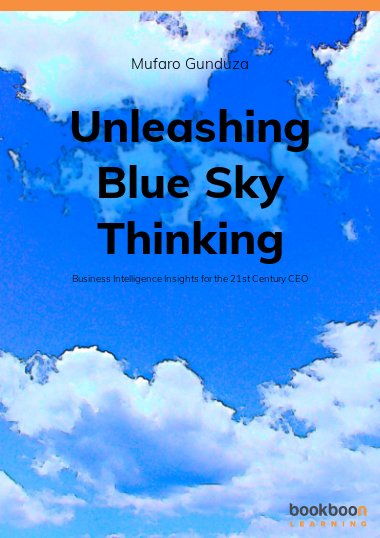This book aims to provide the 21st century business leader with the requisite rites of passage to discover their hidden and unrealized potential so that they begin to unleash it in their day to day wpr life. It provides simple yet genius solutions to the myriad situations corporate stewards face as they seek to create value for their organizations. A number of new concepts are introduced in the book. These include ‘thinking without the box’, ‘thinking wide and wild’, brinnovation (breakthrough innovation), winnovation (winning innovation) and co-opetition (creation of business synergies even among competitors). It introduces new theories of business intelligence drawn from nature such as the spider’s web theory, the eagle theory, the giraffe theory and the zebra theory to name just a few. The book furthermore, underscores the importance of guerrilla research methods especially when classical research formulas fail or are inadequate.
About the author
Mufaro Gunduza is an author, motivational speaker, coach and professor at Mount Carmel Institute of Business Intelligence in Harare, Zimbabwe. He has taught at a number of universities in Southern Africa. These include the University of Zimbabwe (UZ), Zimbabwe Open University (ZOU), the Women’s University in Africa (WUA), UNISA, Walter Sisulu University (WSU) and Chinhoyi University of Technology (CUT).He pioneered the prestigious Masters Degree in Business Intelligence (MBI) in Africa. He regularly hosts executive seminars and conferences on Creativity & Innovation, Blue Sky Thinking, 360 Degree Ethical Leadership, Boardroom Intelligence, Guerrilla Research Methods and Financial Intelligence & Stewardship. He sits in the following boards: the Great Dyke Educational Trust, the Ethics Institute of Zimbabwe, and Emerald Hill School for the Deaf, the Marlen-Woch Foundation and the Rotary Club of Harare City’s Public Relations Cluster.

